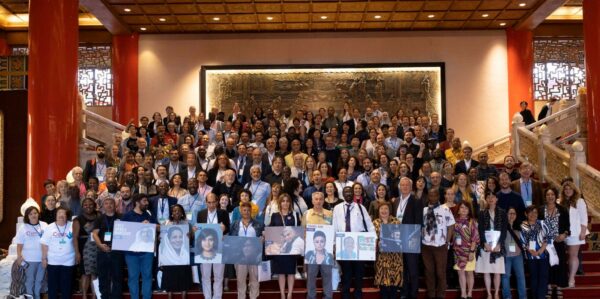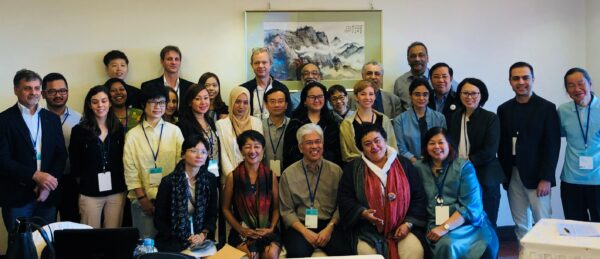Vincent Metten, EU Policy Director of the International Campaign for Tibet (ICT), participated this week in the International Federation for Human Rights’ (FIDH) 40th Congress in Taipei.
More than 400 rights advocates, government officials and experts from 192 non-governmental organizations, including ICT—which became a full member of FIDH in 2010—attended the five-day congress, Oct. 21-25, 2019. This year’s theme was “Our Right, Our Fight, Our Future – Reclaiming the Universality of Human Rights.”

Said Metten: “FIDH Congress is an excellent event to network and exchange views and find common ground with other human rights organizations, in particular with Asian leagues. The fact that Taiwan, a vibrant democracy, was chosen to host this year’s congress highlights FIDH’s focus on the human rights situation in the region and in China.”
The opening ceremony was attended by Taiwanese President Tsai Ing-wen, who said the government is committed to improving human rights protection in a wide range of areas. Several resolutions were adopted during the congress, including one supporting Hong Kongers’ protests calling for government accountability and political reform.
FIDH member organizations elected their new president, Botswana activist Alice Mogwe, who will lead the federation for the next three years, ushering in its 100th anniversary in 2022. Mogwe said, “The universality of human rights is under attack, we must fight back.”
In the margins of the congress, Metten met with Representative of His Holiness the Dalai Lama Dawa Tsering, as well as with Tashi Tsering and Lin Hsinyi of the Human Rights Network for Tibet and Taiwan and with the President of the Tibetan community in Taiwan, Tenzin Namda, and some members of the community.
On Oct. 23, Professor Mumin Chen organized a discussion at Chung Hsing University in Taichung on “Tibet-China Relations: History, Current Situation and Prospects” as part of the ethnic conflict and state cohesion training. Metten and Lau Hon-Shiang, a research scholar of Chinese history, were invited as speakers. The students from Taiwan and other Asian countries asked pertinent questions and allowed a frank and constructive discussion.
